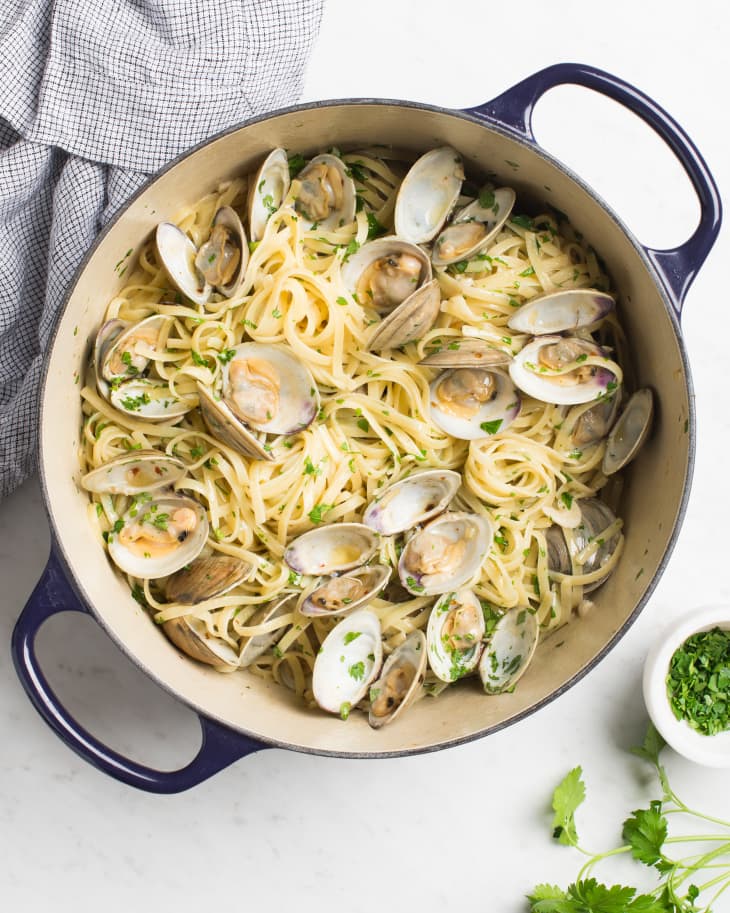“Undercooking your noodles by one to two minutes makes them perfect by the time you’re ready to enjoy them,” Rider said. You can prevent mushy ramen by draining the noodles immediately and rinsing them under cold water.
What does it mean if your ramen is slimy?
For maze-soba, the type of ramen dish that mixes small amount of soup or sauce with noodles, if you cook and serve noodles as they are, it would be poor texture with slimy starch on them. You should cook noodles and wash starch off the noodles first.
Why are my ramen noodles mushy?
The reason why noodles get soggy is because noodles absorb too much water. You can prevent that by separating noodles and soup to prolong the longevity of the noodles. It works for sure, but still, eating fresh ramen is the best!
Should I rinse ramen noodles?
Noodles destined for room temperature or cold dishes benefit from a rinse. When noodles cool down, they can clump and taste pasty; rinsing them keeps them loose and arrests the cooking process so they don’t go limp.
How do you make ramen creamier?
The mayonnaise and egg combination results in an incredibly creamy sauce, rather than a watery soup base. If I made this again, I would add other ingredients into the mix. Incorporating sauteed vegetables or mixing in tofu or chicken would make creamy ramen that much better.
Why do my noodles get sticky?
Your pasta noodles can come out sticky and slimy if you haven’t filled your pot with enough water and/or if you’ve cooked them for too long. Sticky and slimy pasta is bad for you. Overcooked pasta has a higher glycemic index than pasta that’s been cooked just enough, a.k.a. al dente.
How do you make ramen not mushy?
This is critical: I find that simply boiling the noodles for 4-5 minutes, as most ramen directions read, produces a limp and soggy noodle. To avoid this, you have to slow down the noodle’s cooking process while the broth continues to cook.
How do you make noodles not sticky?
And if you’re not tossing your noodles in the sauce right away, or you plan to reheat your pasta later, adding olive oil after you take them out of the pot can help prevent sticking. “After you take the noodles out of the water, coating with some olive oil is an effective measure to prevent sticking,” Sigler says.
Do you drain ramen water?
The second important thing is to drain water from noodles completely. Once the noodles have been boiled correctly, we lift up the noodles from the noodle cooker and swing it a little to drain water completely. If the water is not drained well, the soup’s thickness changes.
How do you clean ramen noodles?
It’s important to cook your noodles thoroughly, but don’t overdo it. The only thing worse than an undercooked noodle is a flaccid one. 2 Drain noodles in a colander, and rinse under cold water. “If you have filtered water plumbed into your system, use that, but cool tap water is fine,” says Tong.
How long should you boil ramen noodles?
Preparation. Bring 2 1/2 cups of water to a boil in a small saucepan. Add the noodles and cook for 2 minutes. Add the flavor packet, stir, and continue to cook for another 30 seconds.
How do you make ramen noodles glossy?
If you’re a fellow condiment hoarder, now is your time to shine. A swirl of soy sauce, sesame oil, sriracha, and/or lime juice will all work wonders. For even more spice, add chili flakes. You can also add peanut butter (don’t knock it until you’ve tried it), fish sauce, ponzu, harissa, bacon fat, or any type of curry.
How do you stir an egg in ramen?
Directions:
- Crack an egg into a bowl.
- Boil water in a small pot.
- Put vinegar and salt into the pot.
- Turn off the heat, and stir the water as if you are creating a whirlpool.
- Drop the egg into the center of the pot.
- Heat the egg for 4 minutes on low heat.
- Done!
Can you put milk in ramen broth?
It’s really easy to make and has so much great flavor. The milk perfectly poaches the egg and makes a rich, creamy sauce. Topping the ramen with some fresh green onions adds a bright note to the dish.
What happens if you overcook ramen?
You’re Letting It Get Cold
The majority of ramen arrives with a hot broth, which means noodles can overcook if they sit for too long. An overcooked noodle is not just a mushy noodle: It also makes the broth more starchy.
How do you make Kylie Jenner ramen?
Instructions
- Cook the ramen according to package instruction.
- In a saucepan add the ramen once cooked. Add more water if needed (1 tablespoon or so)
- Add the garlic powder and butter and stir until butter melts.
- Add the beaten egg and cook for 1 more minute.
- Serve and enjoy!

